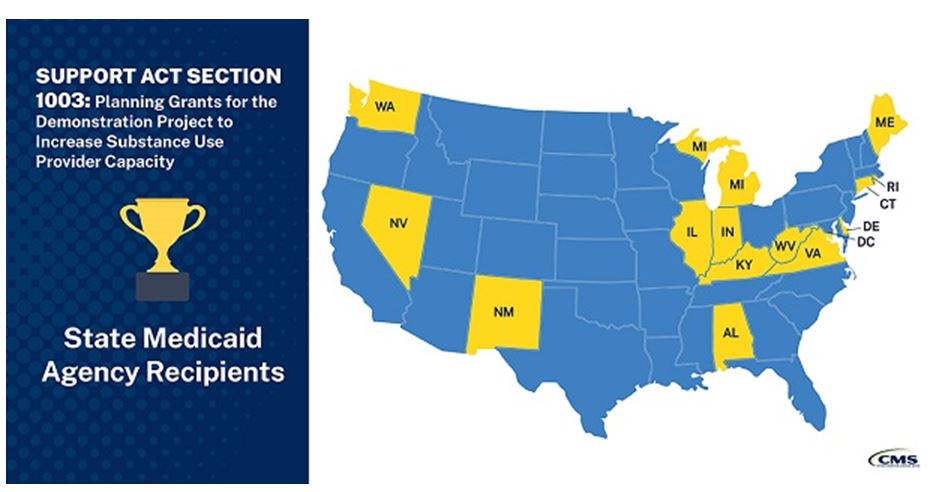
The Centers for Medicare & Medicaid Services (CMS) is conducting a demonstration project to increase the treatment capacity of Medicaid providers to deliver substance use disorder (SUD) treatment and recovery services. CMS selected the District of Columbia for a planning grant of $4.6 million.
The impact of SUD in the District is profound. The District has the highest percentage of residents 12 and older reporting SUD in the past year (11.2%), compared to all states. The District also has the highest reported levels of unmet need for SUD (10.4%); the highest age-adjusted opioid death rate per capita among all urban counties; and the third highest opioid death rate in the nation. Using planning grant funds, the District aims to 1) understand and 2) build provider capacity to diagnose SUD and provide treatment and recovery services in a manner that integrates physical and behavioral health. The planning grant focuses on three sub-populations: individuals with co-occurring mental health conditions; dual-eligibles; and individuals with co-morbid physical health conditions participating in Health Homes.
The planning grant complements the District of Columbia Opioid Response (DCOR) program activities and the District’s joint SUD and SMI/SED 1115 demonstration waiver application. The Medicaid SUD provider capacity grant will support the District’s overall objective of providing a more seamless experience of care that integrates behavioral and physical health, improves treatment rates for SUD, and promotes healthier lives for District residents.
Planning grant activities include:
1. A comprehensive needs assessment of Medicaid provider capacity to diagnose and treat SUD. The needs assessment will build on the District’s 1115 waiver application and enable consideration of payment redesign options to increase and sustain provider capacity to address SUD;
2. Education and technical assistance among Medicaid providers to build capacity to treat individuals with SUD in community settings. This effort will include education to reduce the impact of negative treatment bias among community providers and a competency-based approach to enhance Medicaid providers’ ability to diagnose and treat SUD;
- Providers have several options for participation, including individual practice coaching, webinar sessions, learning collaboratives, and this virtual learning community. More information available at: https://www.integratedcaredc.com/about-icta/
3. Infrastructure to enable structured data collection and communication with District behavioral health providers, as well as the development and implementation of consent management tools to facilitate appropriate exchange of 42 CFR Part 2 data.
Using the comprehensive needs assessment as a baseline, the District will assess growth in District Medicaid provider capacity to diagnose SUD and provide treatment and recovery services. Metrics will include the number of Medicaid providers treating patients with SUD; an increase in the proportion of providers authorized to treat opioid dependence with buprenorphine who prescribe; and an increase in acuity on core competencies for chronic care management with an emphasis on SUD best-practice defined by the ASAM criteria.


